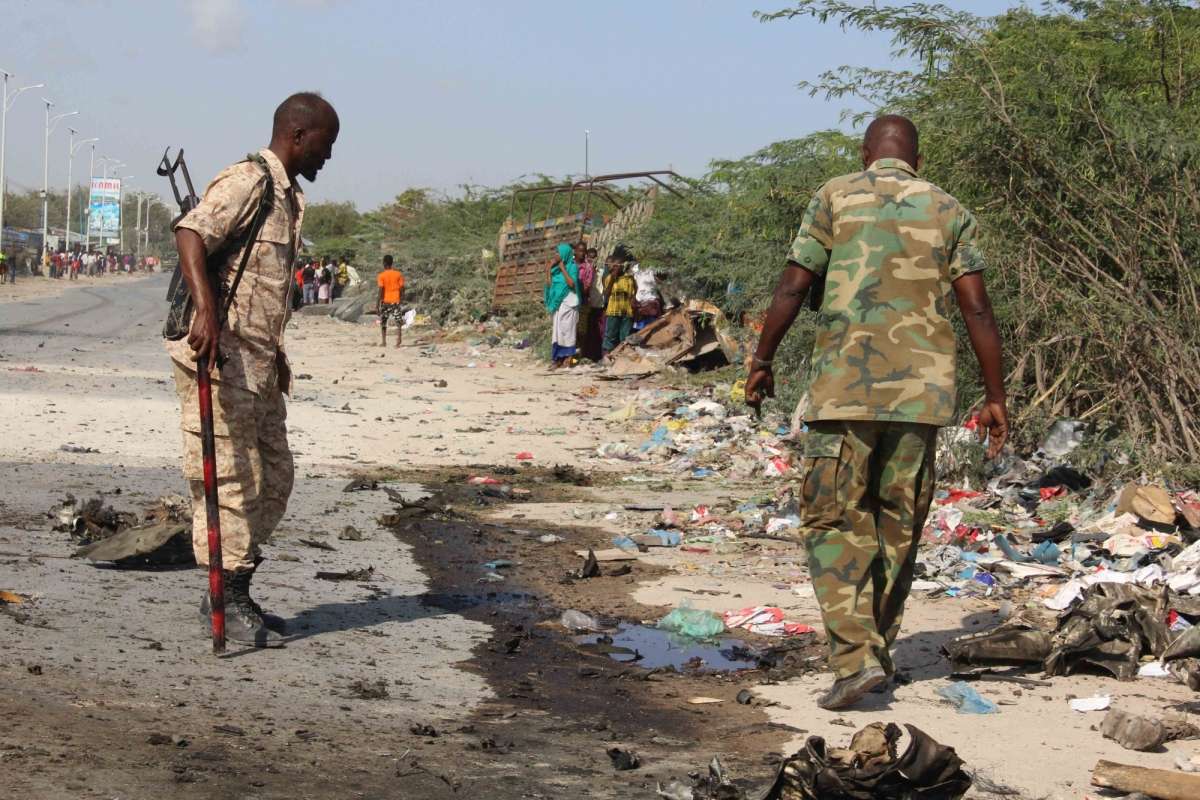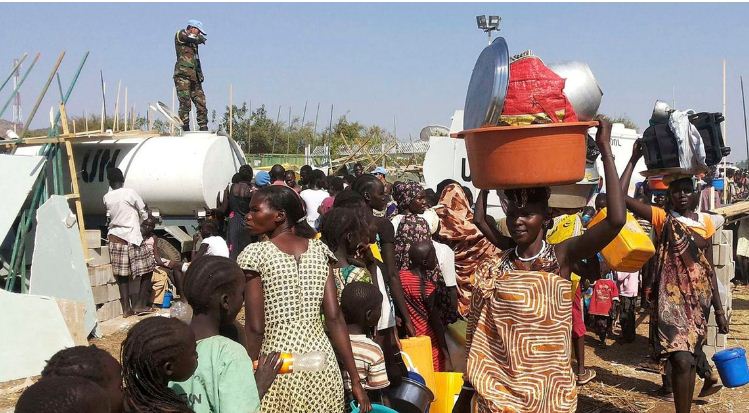The Al-Qaeda-linked militants have been waging an insurgency against the internationally backed federal government for more than 17 years and have previously targeted the Lido beach area…reports Asian Lite News
An Al-Shabaab suicide bomber and gunmen attacked a busy beach in the Somali capital Mogadishu, killing 32 people and wounding scores more, in one of the deadliest attacks in months, police said on Saturday.
The Al-Qaeda-linked militants have been waging an insurgency against the internationally backed federal government for more than 17 years and have previously targeted the Lido beach area, popular with business people and officials.
Unverified videos shared online in the immediate aftermath of the attack showed people scattering along a street, with a number of clips purporting to show bloodied bodies lying on the beachfront.
“More than 32 civilians died in this attack and about 63 others were wounded, some of them critically,” police spokesman Abdifatah Adan Hassan told reporters during a press conference.
“Targeting and blasting to kill 32 members from the civilian population means these Kharijites are not going to target only government centres, soldiers and officials,” he said, using the term Somali officials adopt to describe Al-Shabaab.
The assault, for which Al-Shabaab claimed responsibility in a post on a pro-Shabaab website, began late on Friday when a suicide bomber detonated a device and gunmen stormed the area, police and witnesses said.
Officer Mohamed Omar said they had “shot civilians randomly”. He said security forces had ended the attack and killed five gunmen, while a sixth member of the group “blew himself [up] at the beach”.
Witnesses said there were many people at the popular location when the explosion occurred, describing how gunmen then stormed the area.
“Everybody was panicked and it was hard to know what was happening because shooting started soon after the blast,” witness Abdilatif Ali said.
He said that people attempted to take cover on the ground or flee. “I saw many people strewn [on the ground] and some of them were dead and others wounded,” he said.
Ahmed Yare witnessed the attack unfold from a nearby hotel. “I saw wounded people at the beachside. People were screaming in panic and it was hard to notice who was dead and who was still alive,” he said.
Al-Shabaab has claimed responsibility for numerous bombings and attacks in Mogadishu and other parts of the country, whose government is pressing on with an offensive against the Islamist militants.
The Lido area has been the target of previous attacks, including a six-hour Al-Shabaab siege of a beachside hotel in 2023, which left six civilians dead and 10 wounded.
Five people were killed in a powerful car bomb blast at a cafe in the capital last month.
In March, the militants killed three people and wounded 27 in an hours-long siege of another Mogadishu hotel, breaking a relative lull in the fighting.
Lido Beach, a popular area in Mogadishu, is bustling on Friday nights as Somalis enjoy their weekend. The area has in the past been targeted by al-Shabab fighters.
Al-Shabab has been fighting to topple the fragile central government in Mogadishu for more than 17 years, carrying out numerous bombings and other attacks in the capital and other parts of the country.
The government depends on the support of foreign troops to stay in power. It has also joined forces with local armed groups to fight the group in a campaign supported by an African Union force and United States air raids.
But the offensive has suffered setbacks, with al-Shabab earlier this year claiming it had taken multiple locations in the centre of the country.
In June, Somalia called for the slowing down of the withdrawal of an African peacekeeping mission, known as ATMIS, which is expected to pull out by December 31.
Matt Bryden, strategic adviser with the Sahan Research think tank, said the attack was the largest to hit the country in months.
“It’s a massive security failure,” Bryden told Al Jazeera, noting that this suggested the government’s challenges in fighting al-Shabab ahead of the planned departure of the AU peacekeepers.
On the other hand, Bryden said al-Shabab sent a message that it has the capability to ramp up attacks in the capital as long as the government does not negotiate with it.
“But it’s a fine line that al-Shabab has to walk,” the analyst said.
The prospect of negotiations between the government and the armed group has been floated for years, and there are indications the government is closer than it has been for a long time in talking with the armed group, he added.
“Al-Shabab doesn’t want to delegitimise itself, portraying itself as an indiscriminate terrorist group just as it is seeking political power in the Somali capital … [but] it has just done that,” Bryden said.









